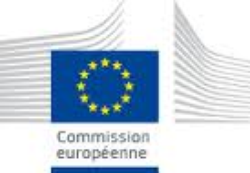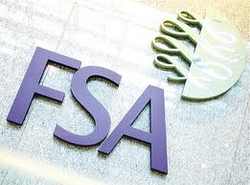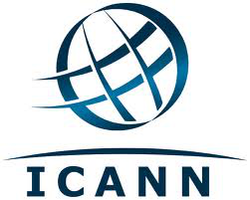Updated: Sept. 25, 2012 (Initial publication: June 12, 2011)
Sectorial Analysis

ENGLISH
On May 12, 2011, both Neelie Kroes, the European Commissioner for the digital agenda within the European Commission, and Larry Strickling, Assistant Commissioner for Communications and Information within the United States Department of Commerce, sent a notification to the ICANN, a private association that manages Internet domain names. First of all, they agreed with the principle of self-regulation of Internet domain names by the ICANN. But, they requested a reform of its “governance” to improve its transparency and better take into account public authorities’ recommendations.
Association - Conflict resolution - Domain name - European commission - Internet - Internet Corporation for Assigned Names & Numbers (ICANN) - Memorandum - Power - Private regulator - Regulatory Authority - Self regulation - Soft law - Transparency - United Nations (UN) *
* In The Journal of Regulation, these keywords are done by the Editor and not by the Author.
PORTUGUESE
Informe bibliográfico (Internet): Autoridades europeias e norte-americanas notificaram a ICANN, uma associação privada encarregada da auto-regulação de nomes de domínio na Internet, que ela deve adotar uma governança mais transparente e também adotar as recomendações de estruturas públicas.
Em 12 de maio de 2011, tanto Neelie Kroes, o Comissário Europeu para a agenda digital dentro da Comissão Europeia, quanto Larry Strickling, Comissário Assistente para Comunicações e Informação dentro do Departamento de Comércio dos Estados Unidos da América, enviaram uma notificação para a ICANN, uma associação privada que gerencia nomes de domínio na internet. Em primeiro lugar, eles concordaram com o princípio da auto-regulação dos nomes de domínio na Internet pela ICANN. No entanto, eles solicitaram uma reforma em sua governança para melhorar sua transparência e melhor levar em consideração as recomendações de autoridades públicas.
Associação – Resolução de conflitos – Nome de domínio – Comissão Europeia – Internet - Internet Corporation for Assigned Names & Numbers (ICANN) – Memorandum – Poder – Regulação privada – Autoridade de regulação – Auto-regulação – Soft law – Transparência – Nações Unidas (ONU)*
* No Journal of Regulation, as palavras-chave são fornecidas pelo Diretor, e não pelo Autor.
ITALIAN
Relazione bibliografica (Internet): Le autorità europee e nord americane hanno indicato che l’ICANN, una società privata che ha lo scopo di auto-regolare i nomi a dominio di internet, dovrà aumentare la trasparenza della gestione ed adottare le raccomandazioni delle strutture pubbliche
Il 12 maggio 2011, Neelie Kroes, Commissario europeo per l’agenda digitale della Commissione europea, e Larry Strickling, Commissario assistente per le comunicazioni e l’informazione del Dipartimento del Commercio degli Stati Uniti, hanno entrambi dichiarato che l’ICANN, una società privata che gestisce i nomi a dominio di Internet, deve riformare il proprio sistema di gestione migliorando la sua trasparenza e deve prendere in debita considerazione le raccomandazioni provenienti dalle autorità pubbliche.
Associazione - Autorità di regolazione - Autorità privata di regolazione - Auto-regolazione - Commissione Europea - Internet - Internet Corporation for Assigned Names & Numbers (ICANN) - Memorandum - Nazioni Unite (ONU) - Nomi di dominio - Potere - Risoluzione di controversie - Soft law - Transparenza *
* In The Journal of Regulation, le parole chiave sono responsabilità dell’Editore e non dall’Autore.
Other translations fortcoming.
Updated: Sept. 25, 2012 (Initial publication: Sept. 19, 2011)
Sectorial Analysis

Main information
An advertisement broadcast in Burkina Faso for an insecticide did not reveal its health risks. The national media regulator published a decision on September 6, 2011 ordering that it be taken off the air and “requested” that the media refrain from broadcasting advertisements dangerous for human health and dignity.
Updated: Sept. 17, 2012 (Initial publication: Sept. 12, 2012)
Breaking news

Updated: Aug. 28, 2012 (Initial publication: Aug. 25, 2012)
Breaking news

Updated: July 17, 2012 (Initial publication: July 5, 2012)
Breaking news

Updated: June 27, 2012 (Initial publication: June 9, 2012)
Thesaurus : Doctrine

Updated: June 25, 2012 (Initial publication: June 20, 2012)
Breaking news

Updated: Jan. 9, 2012 (Initial publication: Jan. 9, 2012)
Thesaurus : Doctrine
Updated: Jan. 3, 2012 (Initial publication: July 19, 2011)
Translated Summaries

Updated: Dec. 8, 2011 (Initial publication: July 15, 2011)
Sectorial Analysis

Translated Summaries
ENGLISH
In May 2011, Nasdaq OMX and its partner Intercontinental Exchange (ICE) were authorized by their respective boards of directors to perform a tender offer on the stock market operator NYSE Euronext. The American Department of Justice was worried about the consequences that this operation would have on competition, and despite the remedies proposed by the two companies, notified them that it would refuse the merger. On May 16, 2011, this potential refusal was enough for Nasdaq OMX and ICE to abandon their plan. This game of signals demonstrates the power of interregulation between merger review and the regulation of tender offers.
Capital market - Competition - Concentration - Financial market - Initial Public Offering (IPO) - Regulator - Self regulation - United States *
* In The Journal of Regulation
Capital market - Competition - Concentration - Financial market - Initial Public Offering (IPO) - Regulator - Self regulation - United States *
* In The Journal of Regulation
ITALIAN
Relazione tematica (Finanza): Il Dipartimento di giustizia americano ha informato Nasdaq e Intercontinental Exchange che rifiuterà la loro offerta pubblica iniziale su NYSE Euronext a ragione degli effetti anticoncorrenziali e le due società hanno quindi abbandonato il progetto.
Durante il mese di maggio 2011, Nasdq OMX ed il suo partner Intercontinental Exchange (ICE) erano stati autorizzati dai propri consigli di amministrazione a fare un’offerta sull’operatore di mercato NYSE Euronext. Il dipartimento di giustizia americano era preoccupato delle conseguenze che tale operazione avrebbe avuto sulla libera concorrenza e, malgrado i provvedimenti proposti dalle due società, aveva informato le società che avrebbe rifiutato la fusione. Il 16 maggio 2011, questo potenziale rifiuto bastò a Nasdaq OMX e ICE a far abbandonare il loro progetto. Questo gioco di segnali mette in rilievo il potere dell’interregolazione tra il controllo delle concentrazioni e la regolazione delle offerte all’asta.
Autoregolazione – Concorrenza - Concentrazione – Mercato finanziario – Mercato dei capitali – Offerta Pubblica Iniziale (IPO) – Regolatore – Stati Uniti d’America *
* In The Journal of Regulation, le parole chiave sono responsabilità dell’Editore e non dall’Autore.
SPANISH
Informe temático (Finanza): El Departamento americano de justicia informó a Nasdaq y ICE que rechazó su IPO sobre el NYSE Euronext a causa de sus efectos anticompetitivos, y que las dos compañías deben por lo tanto abandonar su plan. NYSE Euronext y Deutsche Börse han decidido merge.
En mayo del 2011, Nasdaq OMX y su partidario, Interncontinental Exchange (ICE), obtuvieron la autorización por sus respectivas juntas directivas para extender una oferta en el operador del mercado de valores, NYSE Euronex. El Departamento americano de justicia comenzó a preocuparse sobre las consecuencias que esta operación tendría sobre la competencia, y a pesar de algunos remedios propuestos por las dos compoañías, notificó que rechazaría la unión. El 16 de mayo del 2011, esta rechazo potencial fue suficiente para que Nasdaq OMX y ICE abandonaran su plan. Este juego de señales demuestra el poder de la inter-regulación entre el proceso de revisión de uniones y la regulación de ofertas públicas de adquisición.
PORTUGUESE
Informe temático (Finanças): O Departamento de Justiça dos Estados Unidos da América informou Nasdaq e ICE que ele iria rejeitar o IPO em NYSE Euronext por causa de seus efeitos anti-concorrenciais, assim as duas empresas abandonaram seu plano.
Em maio de 2011, Nasdaq OMX e seu parceiro Intercontinental Exchange (ICE) foram autorizados por suas respectivas diretorias a realizar uma oferta no operador do mercado de estocagem NYSE Euronext. O Departamento de Justiça dos Estados Unidos da América ficou preocupado com as conseqüências que esta operação teria na concorrência, e apesar dos contrapesos indicados pelas duas empresas, informou que ele iria recusar a operação. Em 16 de maio de 2011, esta recusa potencial foi suficiente para Nasdaq e OMX e ICE abandonarem seu plano. Este jogo de sinais demonstra o poder da interregulação entre revisão de operações e regulação de ofertas.
Mercado de capitais – Concorrência – Concentração – Mercado financeiro – Oferta pública inicial (IPO) – Regulador – Auto-regulação – Estados Unidos.*
* Em The Journal of Regulation, estas palavras-chave são fornecidas pelo Editor e não pelo Autor.
.....................
Other translations forthcoming.
Updated: Sept. 19, 2011 (Initial publication: Sept. 16, 2011)
Contributions

Updated: Sept. 15, 2011 (Initial publication: June 12, 2011)
Contributions

Updated: Sept. 1, 2011 (Initial publication: July 15, 2011)
Contributions

Updated: Aug. 31, 2011 (Initial publication: June 9, 2011)
Contributions

Updated: June 16, 2011 (Initial publication: May 27, 2011)
Releases : I. Isolated Articles
ENGLISH
Competition is the principle element of markets, in the princely sense of the term.The relationships that regulation maintains with competition are ambiguous. It is important to eliminate this ambiguity in order to reveal the ab initio opposition between regulation and competition, to shed light upon the dialectics between both of them. Indeed, regulation may aim at building competition, and is thereby presented as a tool that will cease being used when the competitive market functions effectively.
Administration - Autorité de Régulation des Communications électroniques et des Postes - Competition - Competition Authority - Conflict of intersts - Consumer - Contract - Equilibrium - European Commission - Ex ante / Ex post - Government - Hayek - Horyzontal regulation - Information asymmetry - Liberalisation - Market failure - Natural economic monopoly - Online gambling - Political mandate - Postal services - Power - Principle - Real economy - "Réglementation" - Regulator - Regulatory Authority - Self regulation - symmetrical regulation - Telecommunication - Tool - Watchdog *
* In The Journal of Regulation, these keywords are done by the Editor and not by the Author.
PORTUGUESE
Artigo: Regulação versus Concorrência
Concorrência é o principal elemento dos mercados, no mais genuíno sentido da palavra. As relações que regulação mantém com a concorrência são ambíguas. É importante eliminar essa ambiguidade de modo a relativizar a oposição ab initio entre regulação e concorrência, para trazer luz para a dialética entre elas. Com efeito, regulação pode tender a construir a concorrência, e é então apresentada como uma ferramenta que deixará de ser usada quando o mercado competitivo passar a funcionar realmente.
Administração – Autorité de Régulation des Communications électroniques et des Postes – Concorrência – Autoridade de concorrência – Conflito de interesse – Consumidor – Contrato – Equilíbrio – Comissão Europeia – Ex ante / Ex post – Governo – Hayek – Regulação horizontal – Informação assimétrica – Liberalização – Falha de mercado – Monopólio econômico natural – Jogo em linha – Mandato político – Serviços postais – Poder – Princípio – Economia real – Regulamentação – Regulador – Autoridade de regulação – Auto-regulação – Regulação simétrica – Telecomunicações – Ferramenta – Observador*
* No Journal of Regulation, as palavras-chave são fornecidas pelo Diretor, e não pelo Autor.
ITALIAN
Articolo: Regolazione vs. Concorrenza
La concorrenza è il principio fondamentale dei mercati, nel senso stretto del termine. Le relazioni tra regolazione e concorrenza sono ambigue. Per rivelare il contrasto tra regolazione e concorrenza è importante cancellare questa ambiguità e chiarire la dinamica di questi due concetti. In effetti, la regolazione punta a sviluppare la concorrenza ed è spesso considerata uno strumento che non avrà più ragion d’essere una volta che il mercato funzionerà in libera concorrenza.
Amministrazione - Asimmetria dell’informazione - Autoregolazione - Autorità di regolazione - Autorité de Régulation des Communications électroniques et des Postes - Autorità garante della concorrenza - Commissione Europea - Concorrenza - Conflitto di interessi - Contratto - Consumatore - Economia reale - Equilibrio - Ex ante / Ex post - Governo - Hayek - Liberalizzazione - Mancato Funzionamento del mercato - Monopolio economico naturale - Mandato politico - Potere - Principio - "Regolamentazione" - Regolatore - Regolazione orizzontale - Regolazione simmetrica - Servizi postali - Scommesse online - Strumento - Telecomunicazioni - Vigilanza *
* In The Journal of Regulation, le parole chiave sono responsabilità dell’Editore e non dall’Autore.
SPANISH
Artículo: Regulación versus la competencia
La competencia es el elemento principal de los mercados, en precisamente el sentido de este término. Es importante eliminar esta ambigüedad para poder revelar la posición ab initio entre la regulación y la competencia, para poder traer a luz las dialécticas entre las dos. Así tanto, la regulación puede intentar construir la competencia, y es, por consiguiente, un instrumento que cesará de ser utilizado cuando el mercado competitivo funcione de manera eficaz.
Other translations forthcoming.
